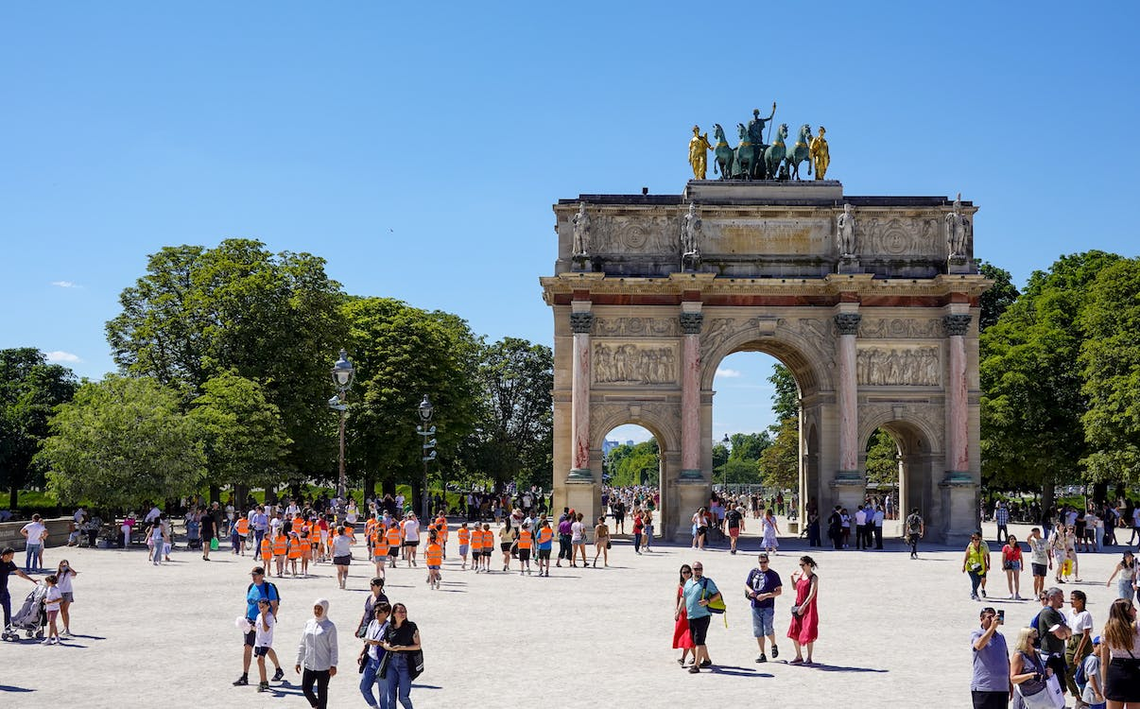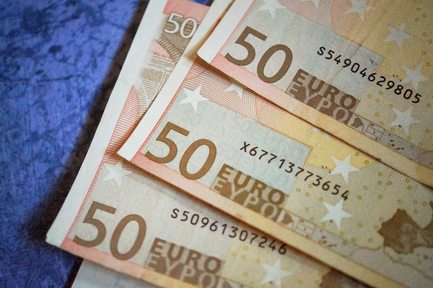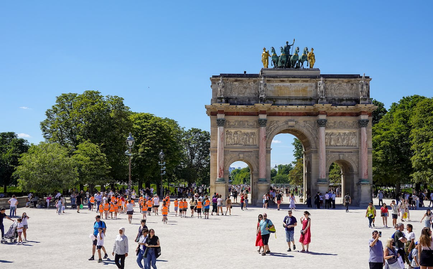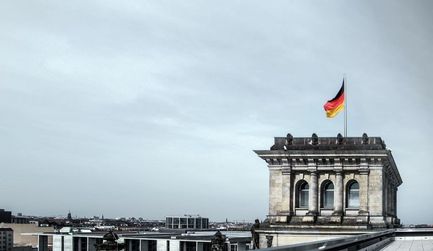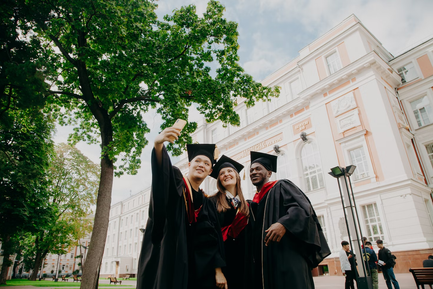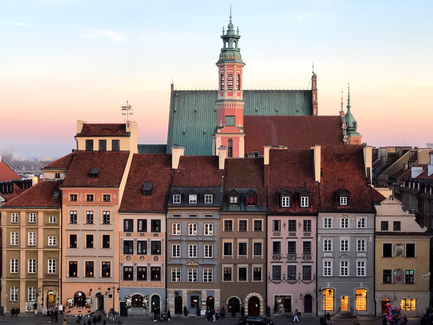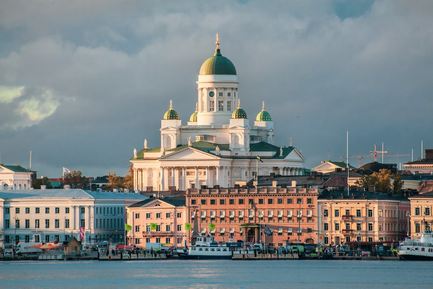
Secondary education in France
According to the French law, education in France is mandatory from ages 3 to 16. Secondary education (enseignement secondaire) is divided into two stages:
The first stage (le Collège) starts at the age of 11 and lasts for 4 years. During this time, kids study a set of subjects standardized for all schools (French, foreign languages, art, music, art history, physical education, geography, science, mathematics, computer science). Additionally, they have the opportunity to choose optional classes in the following areas: foreign languages, languages and cultures of Europe, languages and cultures of Antiquity, choral singing. At the end of the fourth year of study, all students pass an exam, after which they receive a diploma of completed secondary education.
Second Stage (le Lycée) is also mandatory for most students, as the first stage ends at the age of 15. The training lasts for 3 years. High schools are divided into three types: general, technical and professional. The first academic year is the same for general and technical schools: students are taught the same set of subjects as at the first stage of secondary school. In addition, they choose one optional subject from the list of general ones (languages, art, physical education, ecology and agronomy) and one from the list of technical subjects (management, healthcare, mathematics, natural sciences, engineering).
- General high schools (baccalauréat général). Starting from the second year, students can choose three of the twelve areas of study (art, science, politics, healthcare, mathematics, etc.). In the last year they have to choose two out of the selected three. A diploma obtained after graduating from a general school does not provide employment opportunities, so graduates continue their studies at the university.
- Technical high schools (baccalauréat technologique). There are eight possible areas of study: management, the hotel business, healthcare, agronomy, design and applied art, engineering, laboratory research, and theater. Despite the applied orientation of specialties, graduates of technical schools after passing the exams also go to universities and grandes écoles to continue their studies.
- Vocational schools (baccalauréat professionnel). Training here, depending on the direction taken, lasts from two to three years. After the final exams, students receive a certificate of professional qualification (certificat d'aptitude professionnelle) or a diploma of graduation from a professional school (brevet d'études professionnelles). This type of institution allows graduates to find jobs quickly, but despite this, many continue their studies at specialized technical universities.
Education in France does not cease to attract students from all over the world. France ranks second among the most popular countries to study for foreigners in Europe[1]. In one country, you can find both ancient and modern universities of high renown with advanced scientific communities. Foreign students do not even need to know French — more than half of the 3,500 educational institutions in France have programs in English.
Advantages of studying in France
- Low cost. Since September 2019, France has introduced additional tuition fees for students from countries outside the EU studying in French. But even then the cost of training is still quite democratic compared to, for example, neighboring Italy and Spain. It is worth noting that this applies only to public institutions. Private grandes écoles can set tuition fees on their own.
- Student satisfaction. 80% of students studying in French universities are satisfied with the quality of education and the demand for their diploma. 9 out of 10 foreign students praised the time spent here and recommend France as a place of study[2].
- International Center. France is home to 28 of the 500 largest international companies[3]. Many of them are leaders in their sector: Total (energy); Orange (telecommunications); Sanofi (healthcare); LVMH (luxury goods); L'Oréal (cosmetics); Danone (food). Each of the companies offers students a unique internship opportunity.
Disadvantages of studying in France
- University funding. France spends 7,153 USD per year per student at a state university. At the same time, grandes écoles spend up to 13,878 USD per student each year. Despite the fact that only 5% of all students are enrolled in great schools, about 30% of the educational budget of the state is spent on them[4]. This leads to the poor state of classes at state universities, outdated technical equipment and shortage of teaching materials.
- Overcrowded classes. French universities are required to accept all eligible students in their first year of study. Too many students results in overcrowded classrooms. Due to funding problems, some students simply have nowhere to sit, lectures have to be broadcast in several lecture buildings, and problems with technology, in this case, can leave half of the students without any educational information.
- High expulsion rate. In different universities, this ratio ranges from 20 to 70%[5], which is incredibly high compared to the Anglo-Saxon systems. Ease of admission to a French university disguises large volumes of study workloads and a rigorous grading system.
Cost and structure of education in France
| Type of training | Min. age | Duration | . Min. cost | Avg. cost | Level of proficiency | Exams |
|---|---|---|---|---|---|---|
| Summer camp | 4+ | 1-10 weeks | 160 USD/week | 320 USD/week | A1 | - |
| Language Schools | 6+ | 1–52 weeks | 200 USD/week | 389 USD/week | A1 | - |
| Secondary education — College | 11+ | 4 years | Free | 2,402 USD/year | B1 | DELF B1 |
| Secondary education — Lyceum | 15+ | 3 years | Free | 2,669 USD/year | B1 | DELF B1 |
| Prof. education — DUT | 18+ | 2 years | 181 USD/year | 181 USD/year | B2 | DELF B2 / IELTS 5.5 |
| Foundation — CPGE | 18+ | 2-4 years | 181 USD/year | 2,135 USD/year | B2 | DELF B2 / IELTS 5.5 |
| Bachelor’s — License | 18+ | 3 years | 259 USD/year | 10,676 USD/year | B2 | DELF B2 / IELTS 5.5 |
| Master's | 21+ | 2 years | 406 USD/year | 12,811 USD/year | C1 | DALF C1 / IELTS 7.0 |
| MBA | 21 + | 10-16 months. | 41,101 USD/year | 59,783 USD/year | C1 | DALF C1 / IELTS 7.0 |
| Doctoral | 23+ | 3-5 years | 406 USD/year | 6,405 USD/year | C1 | DALF C1 / IELTS 7.0 |
It should be noted that the minimum costs for bachelor’s and master’s programs are different in case of non-European nationals who are subject to the recently introduced tuition fees: 2,957 USD/year for License programs and 4,025 USD/year for Master’s courses.
Additional Costs
| Expenses | Average cost |
|---|---|
| Exams | 77 USD |
| Registration fee (CVEC) | 97 USD |
| Flight | 160 USD |
| Rent | 587 USD / month |
| Meals | 726 USD |
| Insurance | 232 USD / year |
| Training materials | 53 USD / month |
Options for admission to French universities
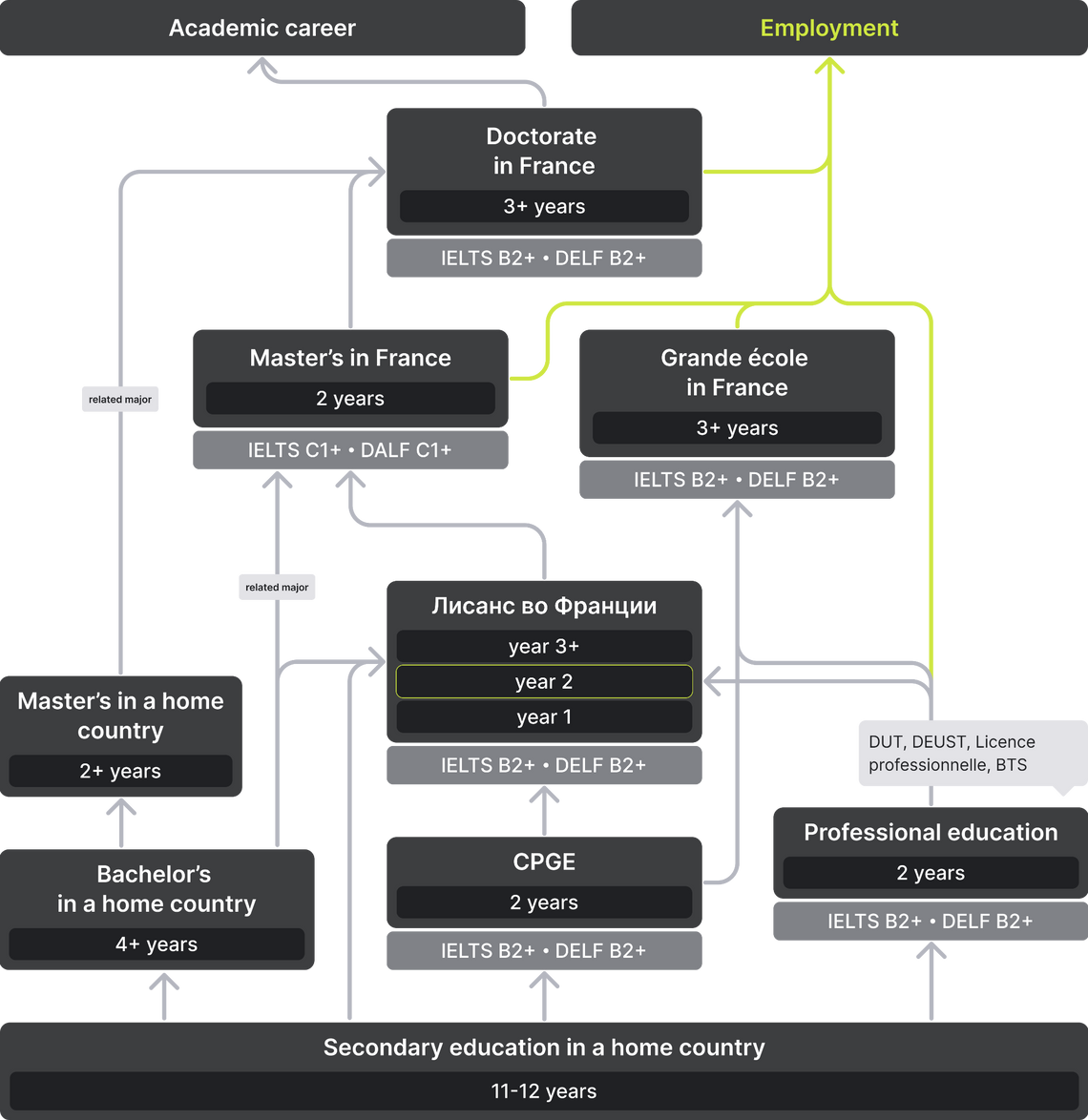
Short trajectory of higher education
One of the options for higher education formations in France — les filières courtes — short trajectories. Future specialists in the field of services or production industry can choose this path. This type of education provides an opportunity for real and quick employment. After 2 years of study, the graduate receives a diploma of DUT (Diplôme universitaire de technologie) or BTS (Brevet de technicien supérieur). The main difference between them is that BTS, which corresponds to the narrower specialty of the senior technologist, is issued by high schools and private companies, and DUT — by specialized universities (Instituts universitaires de technologie).
Long trajectory of higher education
Another type of higher education — les filières longues — long trajectory. This path corresponds to the gradation of the Bologna process and coincides with the system of degrees given to students at universities in Europe, America and most other countries. This option is suitable for those who want to receive an internationally recognized bachelor’s, master’s or doctoral diploma. In France, bachelor's programs last 3 years, master's programs — 2 years, doctorates — 3 years.
Great schools — Grandes écoles
Great schools, or Grandes écoles, are a special type of higher education institution in France. Education here is considered extremely prestigious, but, unlike state universities, which are obliged to accept everyone, great schools carefully select their students. In addition to difficult entrance tests, all applicants must complete two or three years of study in special preparatory classes (CPGE - Classe préparatoire aux grandes écoles). Great schools train highly qualified specialists in the field of engineering, management, economics, warfare, education and culture. An additional complication will be the fact that not all grandes écoles accept foreign students.
Studying in France in English
French universities offer about 800 programs, which are taught entirely in English. Most of them relate to such areas as business, management, exact sciences and engineering. Least amount of programs in English are provided in the fields of humanities, literature, design and art. In most cases, knowledge of French is required in order to train in these specialties. Read more about French language courses here.
Foundation — Preparatory programs in France
There are no preparatory courses for regular universities, but before entering grandes écoles students can complete special classes — CPGE (Classe préparatoire aux grandes écoles) or prépas. Education usually takes two years, but can be extended to three and, in exceptional cases, four years. The main criterion for accepting applicants is their academic performance during the last two grades of high school. At the same time, for such courses there is no single standardized admission procedure, therefore, in different schools the criteria may differ: somewhere, the extracurricular activities of the future student may matter, and somewhere, the interview. Among all the graduates of French schools, no more than 10% enter preparatory classes.
There are three types of CPGE:
- Science classes (Les classes préparatoires scientifiques) offer training in seven areas, covering the entire spectrum of natural sciences. Each program consists of compulsory classes in mathematics, physics, literature, philosophy and a foreign language. Students can also choose one of the optional subjects: biology, geology, chemistry, programming or biotechnology.
- Economics classes (Les classes préparatoires économiques et commerciales) prepare students for admission to the best business schools in France. Educational programs include mathematics, business history, geography, French, philosophy, and two additional foreign languages.
- Philological classes (Les classes préparatoires littéraires) provide training in all liberal arts: philosophy, literature, history, geography, foreign and ancient languages. Classes are of two types: those that are focused exclusively on languages (A / L), and those that, in addition to humanities, include sociology and mathematics (B / L).
The assessment system, in accordance with the Bologna process adopted in France, uses ECTS credits. Many prépas also partner with universities, allowing students who didn’t manage to get into grandes écoles enroll in the second or third year of the university immediately.
Preparatory classes exist for higher arts schools (écoles supérieures d'art) and musical conservatories (conservatoires supérieurs de musique). They are part of the Ministry of Culture and are supervised by the organization APPÉA (association nationale des classes préparatoires publiques aux écoles supérieures d'art). For admission, students pass entrance trials, often in the form of tests or interviews. Education here lasts from three to five years.
In addition, some private universities and companies also offer applicants undergo foundation programs that lasts for one academic year. They mainly include the study of French and/or a number of subjects taught at this university. After the completion of such programs, students that show good academic performance can then proceed to study at the university.
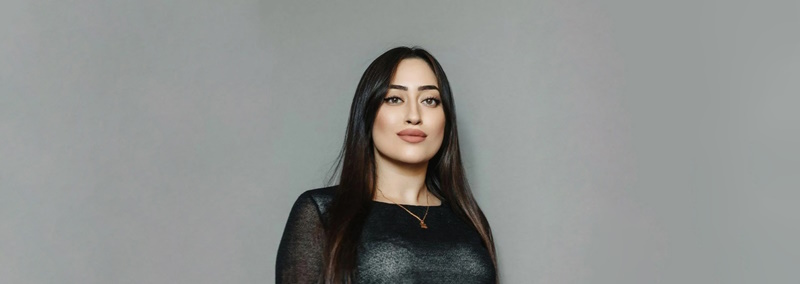
Vocational education
In France, there are several options for vocational education equivalent to European colleges:
- DUT — diplôme universitaire de technologie. It is available at technical institutes (institut universitaire de technologie, IUT) and at the national conservatory (Conservatoire national des arts et métiers, CNAM). Training takes 2 years on average. After the DUT, you can immediately apply for a job or continue your education on the appropriate programs at the university Licence or grandes écoles (DUT is equivalent to CPGE).
- DEUST - diplôme d'études universitaires scientifiques et techniques. Getting a diploma of a scientific and technical university takes 2 years. These programs have a narrower range of directions compared to DUT and are designed primarily to meet local needs for specialists.
- License professionnelle. Admission to professional Licence is possible after training in one of the two previous programs. Education here lasts one year and allows students to gain specialization and additional experience.
The educational process in each of the listed options includes theoretical lectures, practical classes and mandatory internships at the workplace.
The application process is overseen by the national agency for the promotion of higher education — Campus France.
Long trajectory admission process
The Campus France website contains a complete catalog of universities in France and detailed instructions on how to create an online profile with the necessary documents. The process of enrolling in French higher educational institutions varies depending on a student’s nationality and the level of studies. Students may need to enter their academic choices on the Parcoursup platform, make a Demande d'Admission Préalable — DAP (Preliminary Admission Request) or contact institutions directly, then follow the Etudes en France process until getting a student visa or apply for a researcher-talent passport. When indicating the universities of interest, one should remember that only 3 choices are available. The main steps for each level are outlined in the following table.
| Level of studies | European | Non-European | Countries affected by the Etudes en France procedure |
|---|---|---|---|
| 1st year of Licence | Parcoursup | DAP + student visa | Parcoursup or DAP + Etudes en France |
| 2nd or 3d year of Licence | Institutions* | Institutions + student visa | Institutions + Etudes en France |
| Master’s | Institutions | Institutions + student visa | Institutions + Etudes en France |
| Doctoral | Institutions | Institutions + researcher-talent passport | Institutions + researcher-talent passport |
* "Institutions" means contacting and applying to the educational institutions of interest directly
Applicants are usually required to provide:
- Original passport;
- The original and notarized translation of the certificate of completed secondary education or previous diploma (degree) with transcripts;
- Proof of French or English language proficiency.
If a future student does not have a certificate that proves the necessary level of the French language, he needs to sign up for TCF DAP testing, which is conducted by the French Ministry of Education in one of the official centers.
Please note that not all universities are "connected" to the Campus France system (there is a special mark in the catalog for this), and therefore the scheme of admission may differ.
Should students have any questions, they can contact the Campus France office in a home country for information and support.
Bachelor’s — Undergraduate
The undergraduate (Bachelor’s) program in France corresponds to Licence, which lasts for three years. There are no entrance tests to state universities, and anyone can enroll after submitting the required documents. The admission process usually begins in December and ends in March.
Education in Licence begins in September or October, depending on the university and program. The academic year is divided into two semesters, at the end of each, students must pass exams. They are especially important for students of medical universities, since in France the system called numerus clausus is in place. It means that the number of seats in the second year is limited to 15-20% of first year students. In addition, in French medical schools, there is a quota for foreign applicants, which is a meagre 8% of the total number of places[6]. Since 2020, education reform will take effect, which will remove the quota system, numerus clausus and the first preparatory year before specialization for medical specialities (PACES)[7]. The exact details of the changes are currently unknown.
Admission to most grandes écoles for undergraduate programs is done after the preparatory classes. The process in different grandes écoles may vary: students pass entrance exams, interviews, provide a portfolio, on the basis of which the commission selects worthy candidates. Entrance examinations usually take several weeks and test the knowledge acquired by students in CPGE in a written form. After passing these exams successfully, students will have one more stage — solving a practical task and its oral defence.
Some grandes écoles can be entered immediately after school. This is very common, for example, among engineering schools. Here, two-year preparatory classes are immediately included in the main program. The advantage over CPGE is that the training is not just aimed at passing the entrance tests, but at gaining knowledge in the field of student’s interest. In addition, it is considered less stressful for students to undergo just one examination instead of two, first for admission to CPGE, and then to grandes écoles.
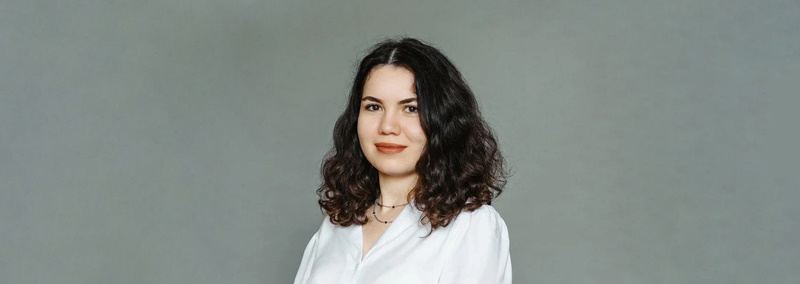
Master’s — Graduate / Postgraduate studies
Master’s programs in French universities last for two academic years. Training begins in September or October and ends in May or June. This period is divided into two semesters with Christmas holidays in the middle. An exam is usually held at the end of each semester. Admission may include entrance examinations, portfolio evaluations, and interviews.
The educational process includes lectures, discussing the material in theoretical classes, visiting workshops and carrying out individual projects. Further down the line, students also need to conduct research work and write a dissertation at the end of the training.
At grandes écoles admission is only possible after passing entrance exams. Master's programs in great schools are called specialized (Mastère Spécialisé). They also last two years, but much emphasis is placed on in-depth knowledge and professional qualifications. The intensive educational process aims at a more in-depth training than in conventional universities.
Doctoral studies — Postgraduate in France
In France, doctoral programs can be offered by universities and special doctoral schools. These are establishments combining doctoral studies at universities and grandes écoles. In addition, they collaborate with French research centres. Doctoral studies last for three years. Education consists of a theoretical part, including lectures and seminars, practical classes and research work. At the end of the doctoral program, students write a dissertation (thesis), the evaluation of which is carried out by a commission consisting of 3-8 specialists in the relevant field. After that, the student must undergo a public defence of the thesis.
Academic career
In the academic field, posts are divided into temporary and permanent. Temporary ones include Attaché temporaire d'enseignement et de recherche (temporary assistants) and Doctorant contractuel (doctoral students). An assistant signs a one-year contract with a university during which he is engaged in research and teaching. This position is sometimes used by students as a "bridge" that allows to get a one year extension to finish their doctoral research in case they are running out of time. Doctorant contractuel are doctoral students who received a special grant for their studies. This grant allows you to study in doctoral studies for three years, during which a student will also be considered a University teacher.
Permanent positions are divided into teaching, research and combined. Professeur agrégé and Professeur certifié are associated only with teaching — they involve working in high schools (colleges and lyceums) or universities. The difference is in the exams that you must pass to access the position. Research posts are considered Chargé de recherche and higher ranking Directeur de recherche. They exist only in research universities in France. Combined posts include Maître de conférences (lecturers) and Professeurs des universités (professors).
Some administrative appointments are available only to academics: for example, the posts of dean, rector, president of the university, as well as the head of the research department.
In order to pursue an academic career, it is not necessary to be a French citizen, but foreigners will need to spend some time here doing research activities during or after doctoral studies.
The salary of a university professor in France ranges from 2,135 USD to 6,405 USD per month, depending on the time worked and position. The average salary is about 3,736 USD per month, which is 20% higher than the average salary in the country[8].
Scholarships and grants of French universities
French state universities and the ERASMUS + program offer students many opportunities to finance their studies. A complete list of scholarships available to foreign students with all up to date information on how to receive them is available in a special section of the Campus France website — Campus Bourses.

French student visa
To study in France, a future student must obtain a visa that allows him to stay in the state for more than 90 days[9]. There are temporary and long-term visas. A temporary (VLS-T) one allows a student to stay in France for one year to study. Long-term (VLS-TS) visas include:
- The VLS-TS student visa, which is equivalent to a residence permit, for studies in undergraduate and master’s programs;
- The researcher-talent passport VLS-TS for training in and after doctoral studies;
- The internship VLS-TS, which is obtained signing a contract with a company or institution in advance.
Work while studying in France
Foreign students have the right to work up to 20 hours a week (or up to 964 hours a year), which is about 60% of the working time of Franch citizens. Foreign students from countries outside the EU must have a long-term visa equivalent to a residence permit (VLS-TS) to work. The minimum tax-adjusted rate is 8 USD per hour[10].
As a rule, foreign students work in the services, restaurant services and retail sectors (consultants or cashiers in clothing stores). You can also find work individually: language teacher, tutor, nurse or nanny. Students at the master's level can get a job as an assistant researcher, and students of doctoral programs have a chance to automatically get a work contract. Student unions in France also offer jobs in community organizations or on the university campus.
In addition, foreigners in France have another option to find work under the state program. Students aged 16 to 25 years can take part-time jobs in social services. Job responsibilities are not strictly defined, as they depend on the project that the student will choose. You can choose from areas such as environmental protection, humanitarian assistance, cultural leisure, sports or the Education for All program. These projects are considered voluntary, but participants receive about 641 USD per month as a reward.
Immigration opportunities
Students who graduate from the French master’s program can obtain a four-year visa specifically for job search — visa recherche d'emploi[11]. It allows you to work for 60% of the full-time rate until the graduate finds a permanent job to request a residence permit. However, the following groups of students need neither a job seeker visa nor a residence permit:
- European students (citizens of EU/EEU countries or Switzerland);
- Algerian students (they do have other regulations);
- Citizens of countries that have concluded migration flow agreements with France.
After staying in the country for two consecutive years, those with a residence permit are eligible to apply for French citizenship[12].

Employment prospects
In France, the problem of employment is acute: more than half of young people aged 25-29 are not employed and not engaged in higher education[13]. France is also ranked seventh in terms of unemployment in the global OECD rating[14]. Even with knowledge of the French language, it won’t be easy for a foreigner to find official employment here. Obtaining a work permit, social security number, registration for taxes — each form entails an even greater number of forms. Visitors complain that it is difficult to get help from local administrative bodies: it is much easier for many public servants to send a helpless foreigner to "another office" than to deal with his problems. 27%[15] of the French themselves leave their homeland in order to seek employment elsewhere.
As for Europe and other countries the degree of the French University is valued internationally in connection with the Bologna process, which aims to bring education standards closer in all European countries. Particularly prestigious degrees are those of French polytechnic schools and metropolitan universities. However, in addition to a diploma, in order to find employment in European companies, it is equally important for a graduate to have recommendations, professional skills and an excellent resume.
Academic career. A master's degree opens up opportunities for admission to doctoral studies. This applies not only to universities in France, but also to universities around the world. The main indicators for successful admission will be the recommendations of professors and the relevance of the research project.
Want to study at a foreign university but don't know where to start? We can help!
Our specialists will find a university, arrange your documents, fill out the applications, and stay in touch until you receive an offer.

